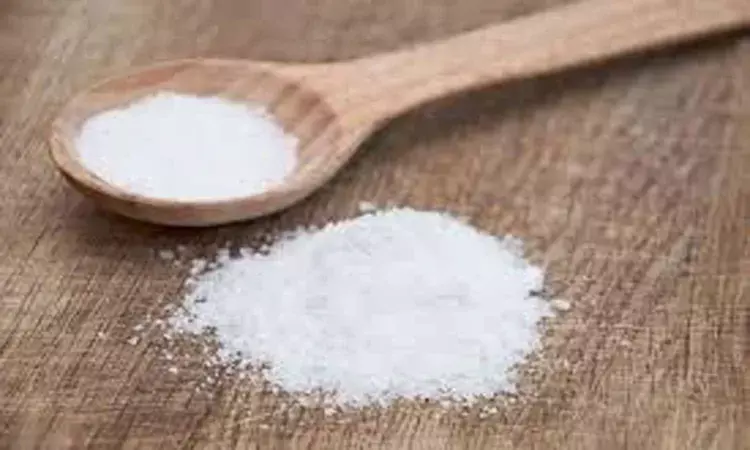- Home
- Medical news & Guidelines
- Anesthesiology
- Cardiology and CTVS
- Critical Care
- Dentistry
- Dermatology
- Diabetes and Endocrinology
- ENT
- Gastroenterology
- Medicine
- Nephrology
- Neurology
- Obstretics-Gynaecology
- Oncology
- Ophthalmology
- Orthopaedics
- Pediatrics-Neonatology
- Psychiatry
- Pulmonology
- Radiology
- Surgery
- Urology
- Laboratory Medicine
- Diet
- Nursing
- Paramedical
- Physiotherapy
- Health news
- Fact Check
- Bone Health Fact Check
- Brain Health Fact Check
- Cancer Related Fact Check
- Child Care Fact Check
- Dental and oral health fact check
- Diabetes and metabolic health fact check
- Diet and Nutrition Fact Check
- Eye and ENT Care Fact Check
- Fitness fact check
- Gut health fact check
- Heart health fact check
- Kidney health fact check
- Medical education fact check
- Men's health fact check
- Respiratory fact check
- Skin and hair care fact check
- Vaccine and Immunization fact check
- Women's health fact check
- AYUSH
- State News
- Andaman and Nicobar Islands
- Andhra Pradesh
- Arunachal Pradesh
- Assam
- Bihar
- Chandigarh
- Chattisgarh
- Dadra and Nagar Haveli
- Daman and Diu
- Delhi
- Goa
- Gujarat
- Haryana
- Himachal Pradesh
- Jammu & Kashmir
- Jharkhand
- Karnataka
- Kerala
- Ladakh
- Lakshadweep
- Madhya Pradesh
- Maharashtra
- Manipur
- Meghalaya
- Mizoram
- Nagaland
- Odisha
- Puducherry
- Punjab
- Rajasthan
- Sikkim
- Tamil Nadu
- Telangana
- Tripura
- Uttar Pradesh
- Uttrakhand
- West Bengal
- Medical Education
- Industry
Limiting salt intake does not reduce risk of hospitalization, death in heart failure patients

Canada: Reduced dietary sodium in chronic heart failure (HF) patients is not linked with fewer hospitalizations or deaths, results from a meta-analysis of RCTs published in Circulation: Heart Failure have shown. However, dietary sodium restriction improves symptoms and quality of life (QoL).
Practice guidelines have suggested sodium restriction as a nonpharmacologic treatment for the management of heart failure patients. In the study, Justin A. Ezekowitz, University of Alberta, Edmonton, Canada, and colleagues synthesized the data from RCTs investigating the impact of sodium restriction on clinical outcomes in HF patients.
The researchers searched the online databases for this aggregate data meta-analysis up to April 2, 2022. The results of interest were hospitalization, mortality, quality of life, and change in the New York Heart Association (NYHA) functional class. RCTs that investigated the effects of sodium/salt restriction versus no restriction on clinical outcomes in HF patients were included.
Seventeen RCTs comprising 834 in intervention and 871 patients in control groups, respectively, were identified.
The study demonstrated the following findings:
- Sodium restriction did not decrease the risk of hospitalization (odds ratio, 0.84), all-cause death (odds ratio, 0.95), or the composite of death/hospitalization (odds ratio, 0.88).
- The results were comparable in various subgroups, except for the numerically lower death risk with reduced intake of sodium reported in RCTs with dietary sodium at the range of 2000 to 3000 mg/d as opposed to <2000 mg/d (and in RCTs compared to without fluid restriction as a co-intervention).
- Among RCTs reporting the change in New York Heart Association, 2 RCTs (which accounted for two-thirds of the data) demonstrated improvement in NYHA class with sodium restriction.
- Substantial heterogeneity existed for quality of life: 6 RCTs showed improvement in QoL, and 4 RCTs showed no improvement in sodium restriction on QoL.
"Findings from a meta-analysis of RCTs showed that sodium restriction was not linked with fewer hospitalization or deaths in HF patients," the researchers wrote. "Dietary sodium restriction may be tied with improvements in symptoms and QoL."
Reference:
Colin-Ramirez E, Sepehrvand N, Rathwell S, Ross H, Escobedo J, Macdonald P, Troughton R, Saldarriaga C, Lanas F, Doughty R, McAlister FA, Ezekowitz JA. Sodium Restriction in Patients With Heart Failure: A Systematic Review and Meta-Analysis of Randomized Clinical Trials. Circ Heart Fail. 2022 Nov 14:e009879. doi: 10.1161/CIRCHEARTFAILURE.122.009879. Epub ahead of print. PMID: 36373551.
Dr Kamal Kant Kohli-MBBS, DTCD- a chest specialist with more than 30 years of practice and a flair for writing clinical articles, Dr Kamal Kant Kohli joined Medical Dialogues as a Chief Editor of Medical News. Besides writing articles, as an editor, he proofreads and verifies all the medical content published on Medical Dialogues including those coming from journals, studies,medical conferences,guidelines etc. Email: drkohli@medicaldialogues.in. Contact no. 011-43720751


